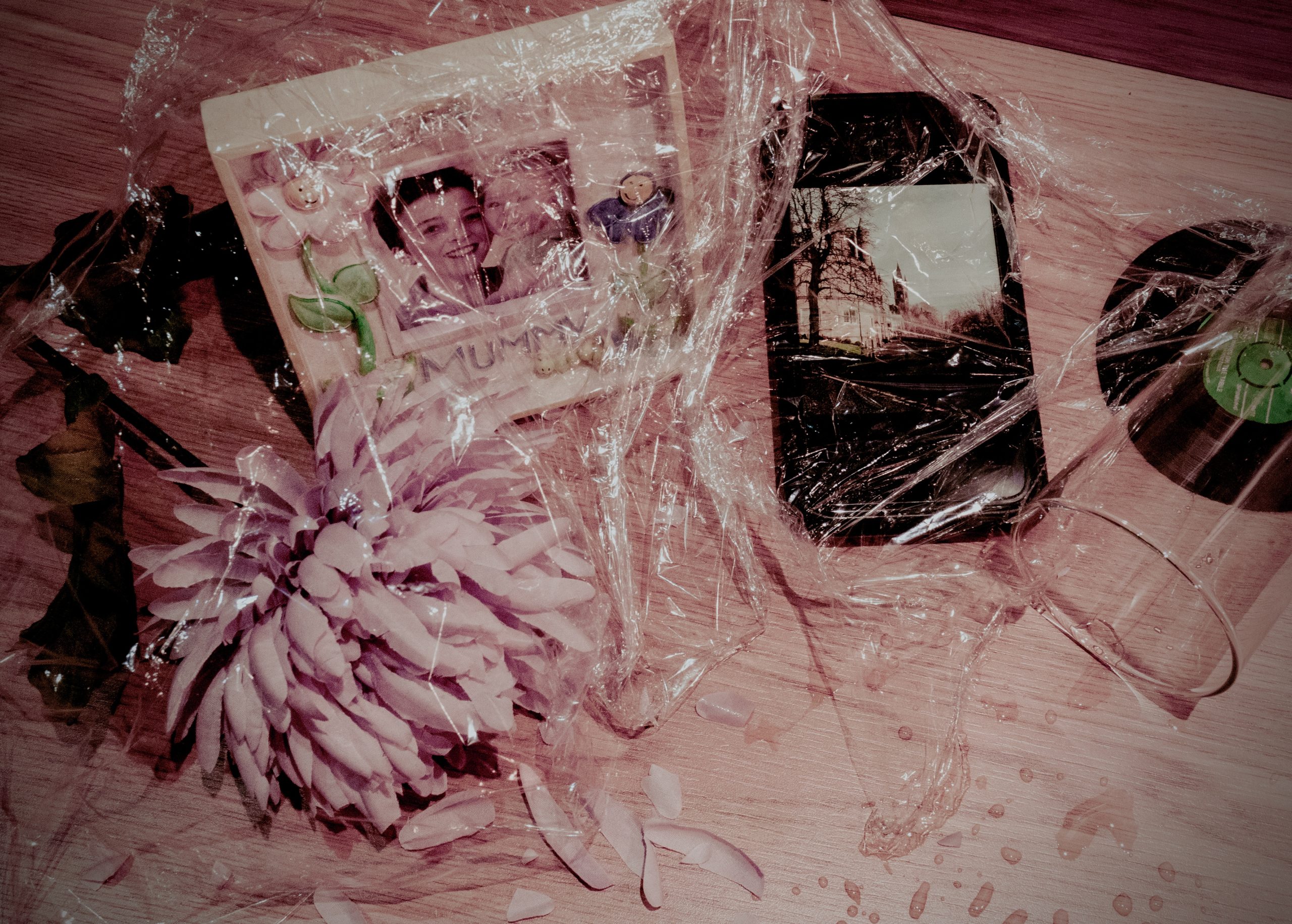[Written by Graham Peacock (he/him)]
[Image Credits: Eva Merritt (she/her]
Content Warning: Contains reference to alcohol dependency.
The last time I saw David was on the December night in Glasgow when he taught me that all of our delusions meet the same end someday. It was in the same place I always see him; in the same bar I always go to when everything goes wrong — and only ever at night. But I imagine that David goes there every night, and perhaps even during the day as well. In my mind he exists only in the darkened corner, at the table with the flickering candle and the fake rose and the drinks menu that he never has to touch because every night he orders the same red wine, poured for him by the faceless, nameless bartender. And whilst he drinks his red wine he keeps his head down for the most part but looks up now and again to take mental notes of who is coming and going from his world, his bar, because, in my mind at least, it was David’s bar, and no one else’s. This is the idea of David that I keep in my mind. But of course I don’t really know what David does with his life when I’m not at the bar. And I don’t go there that often.
David got married to his wife when he was nineteen, and he gave her two kids and a basement flat and did with her all the other things people who marry hastily without any sense of perspective do with each other. David’s wife was from Ireland and he met her in June and married her in November. He told all this to me on one of the nights at the bar where we sat together and talked; lost among the wave of happy voices that washed over us and around us.
He worked hard to provide for her the world he thought she wanted. She had a need for excitement and better looking men that David had no choice but to give in to. Because after all, it was with her his home was created, and without her his world would again become shapeless. He had created for them two lives: one real and another far more bearable, and he spent as much time as he could in the world of his creation. But no matter what he did the real world always won out, and the illusion of their happiness fragmented and shattered. Somewhere along the line she grew tired of him, and took their whole world back home with her to Ireland. But David still lives in the basement flat — only without the two kids, and without the wife he had them with. And so now I imagine David waits at home through the night, watching late-night television and drinking into submission. I imagine he thinks about what his kids who aren’t kids anymore must look like now, 0r about who his wife is sitting with in a bar presumably just like this one.
“Why don’t you go find her?” I asked him, “Since you know where she is.”
He lifted his head up from his drink and for a moment I saw in him the person he once was and the person he is now: both faces fighting to reach the surface — each desperate to suppress the other.
“Don’t you resent her for what she’s done to you? For what she took from you?”
“She hasn’t taken anything from me,” he said defensively. “And I could never be angry at her because she hasn’t taken anything from me. That world is her’s. She’s given me my own with everything I wanted.”
In David’s mind, he still lives with his wife and two kids in the basement flat. And in his mind he still does with them all the things married couples with two kids who never grow up do together.
“You can never let your mind eat away at the memories you have of home,” he told me. “What are we left with when we let our anger and sadness destroy the people we love? I keep everything safe in my mind, so that everything can always be as it once was. I protect every memory, every feeling. I wrap it all in cellophane.”
I think about this as I sit in the bar again, the same one I still go to when everything goes wrong. I leave David alone this time but I watch him from afar. I watch him stare into the red wine as he wraps his troubles in dreams and relives the past again and again, the memories intact: imperishable in cellophane.
I think of the home I lost, and the memories that rotted with it. I think of him lying with me: my hands in his hair, skin against skin. The bed is empty now, save for all the things I should have but couldn’t say that now lay waste among the sheets. I think of him in a bar just like this one, with someone else who looks just like we did. I let the lies drift away until they are so small and quiet that they wither up and disintegrate into atoms and dust. The hurt I felt decays with the passing days. But I protect the happiness that still echoes in my thoughts. I shelter the person I wanted him to be to keep him safe in my mind. I preserve every memory; wrapped forever in cellophane.

